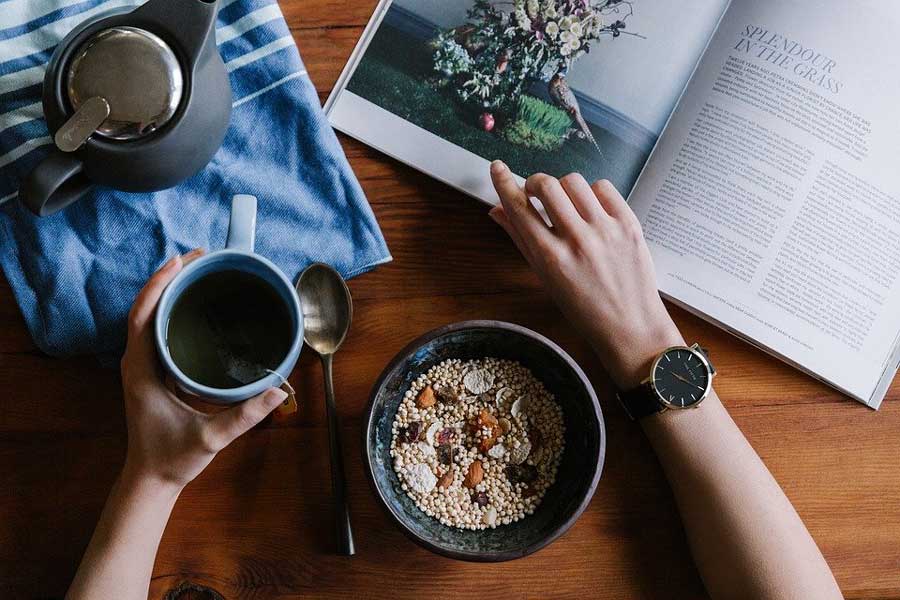
It’s one of the most common questions vegans get asked, “what about protein?”. Well, the most common question right after “Don’t you miss meat?!” and “But you eat fish, right?”.
In fact, over the past few decades, a vegan or plant-based diet has gained a bit of a poor reputation in the fitness world because of the ‘protein question’. However, according to Sports physiotherapist and founder of Plant Proof, an online recourse for a plant-based lifestyle, Simon Hill, there is overwhelming scientific research proving there is little reason to be concerned. A well-balanced plant-based diet, he says, with an adequate calorie intake can provide more than enough protein for both casual gym goers and elite athletes – while also improving overall health and well-being.
Simon also joins a number of health and fitness experts hand-picked by Chris Hemsworth for the latest wellness app Centr. where he shares a number of healthy recipes to help you develop a healthier body and lead a happier, more balanced life.
We sat down with Simon to answer the the all-important question.. how do we get enough protein on a plant-based diet.
First off, how much protein do we actually need to consume?
“Well, the Recommended Daily Intake (RDI) for an average person is 0.84 grams of protein per kg for men and 0.75 grams per kg for women. For those who are particularly active and regularly engage in resistance training, this figure goes up to 1.3-1.8 grams of protein per kg (if the individual is in calorie maintenance or surplus) and between 1.8-2.2 grams of protein per kg if in a calorie deficit as the extra protein may help maintain muscle mass during a weight loss phase. Overall, it’s advisable to consume no more than 25% of calories from protein to allow for sufficient calories from healthful carbohydrates and fats and to avoid causing a strain on our liver and kidneys.”
Now, where can we find protein on a plant-based diet?
“Foods such as legumes, tempeh, tofu, lentils and quinoa are all excellent sources of protein, but almonds, hemp seeds, peanuts, hummus and pulse pasta all provide plenty of protein per serving. Of late, one of my favourite protein meals is a pulse pasta (made from chickpea or legume flour) with a mushroom-tempeh sauce – plenty of protein and absolutely delicious! It’s also worth noting that the majority of plant foods such as vegetables or fruits also contain some protein, which may not seem like much in itself, but over the course of a whole day they can definitely add up. In short, a well-balanced plant-based diet rich in legumes, nuts, grains, seeds and vegetables can easily supply the body with enough high-quality protein.”
Should I take a protein powder?
“Protein Powder can be a convenient and fuss-free way to add more protein to our diets; incorporating it into a smoothie or oat-breakfast can be a good idea. While overall it’s better to source protein from food, protein powders can be helpful to those with high protein requirements who do not wish to consume many calories. To ensure a complete amino acid profile, opt for a vegan protein powder that blends different varieties of plant protein such as pea, rice and hemp – these typically offer the best Leucine concentrations, an amino acid known to significantly affect muscle protein synthesis . Not only have these been shown to be as effective as whey powder when it comes to muscle synthesis, but they are also generally much easier on the stomach. My advice would be to make sure the product is organic, as conventional protein powders can often be laced with synthetic fillers and heavy metals.”
Any more tips?
“My final piece of advice would be to try and not stress the protein too much: the truth is protein deficiency is extremely rare, and in fact, most individuals on a standard western diet are consuming too much of it, causing a strain on our kidneys and liver. A well-balanced diet, plant-based or not, in most cases can provide sufficient protein. Instead of worrying about protein – focus on making sure you’re eating enough fibre!”
Want more stories like this one? Check out our FLOW section. While you’re here, why not sign up to our newsletter and be the first to receive wellness discounts, access to exclusive workouts, competitions and a whole lot of wellbeing tips to live a life of balance (hello, shiraz), sweat and (happy) tears.




